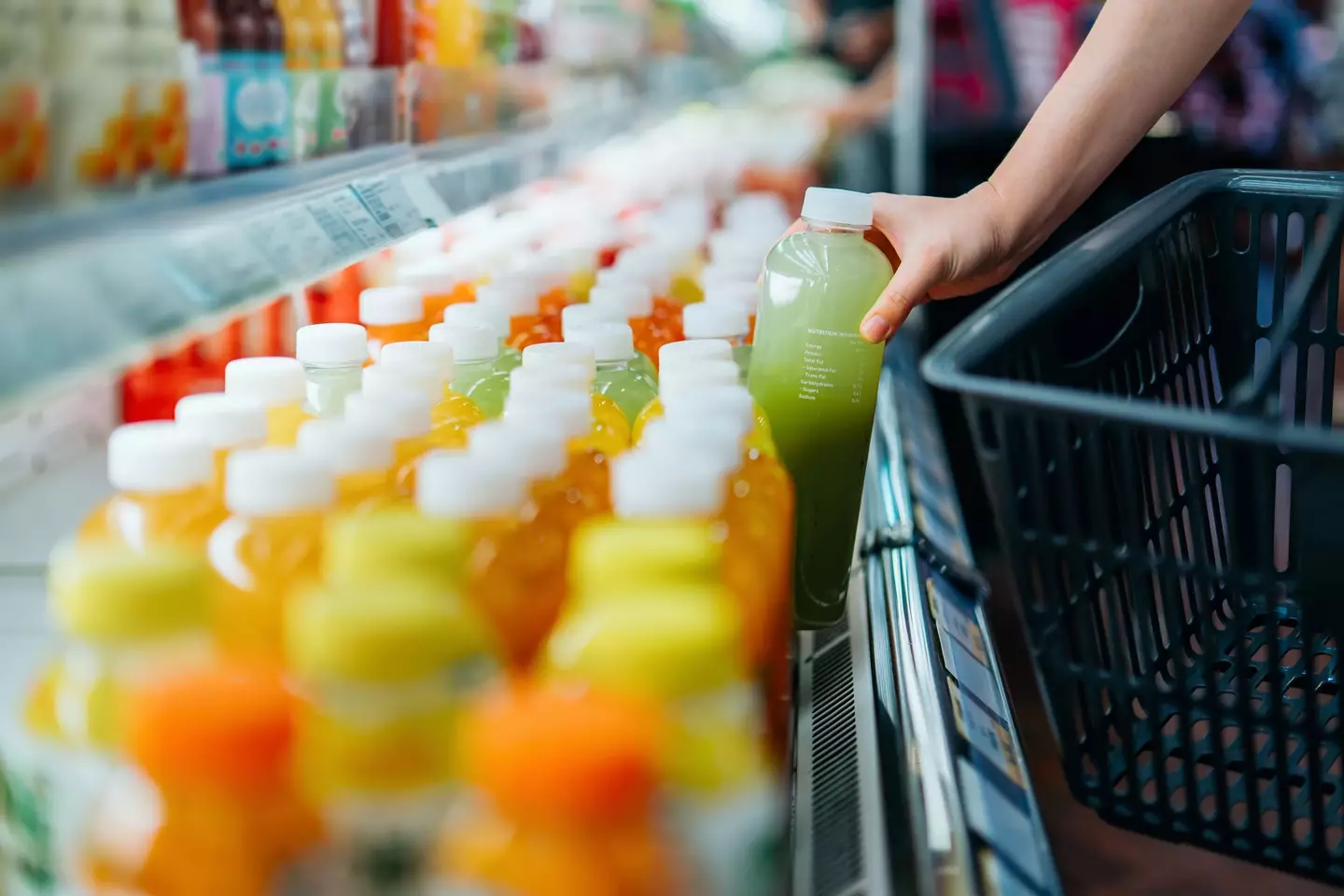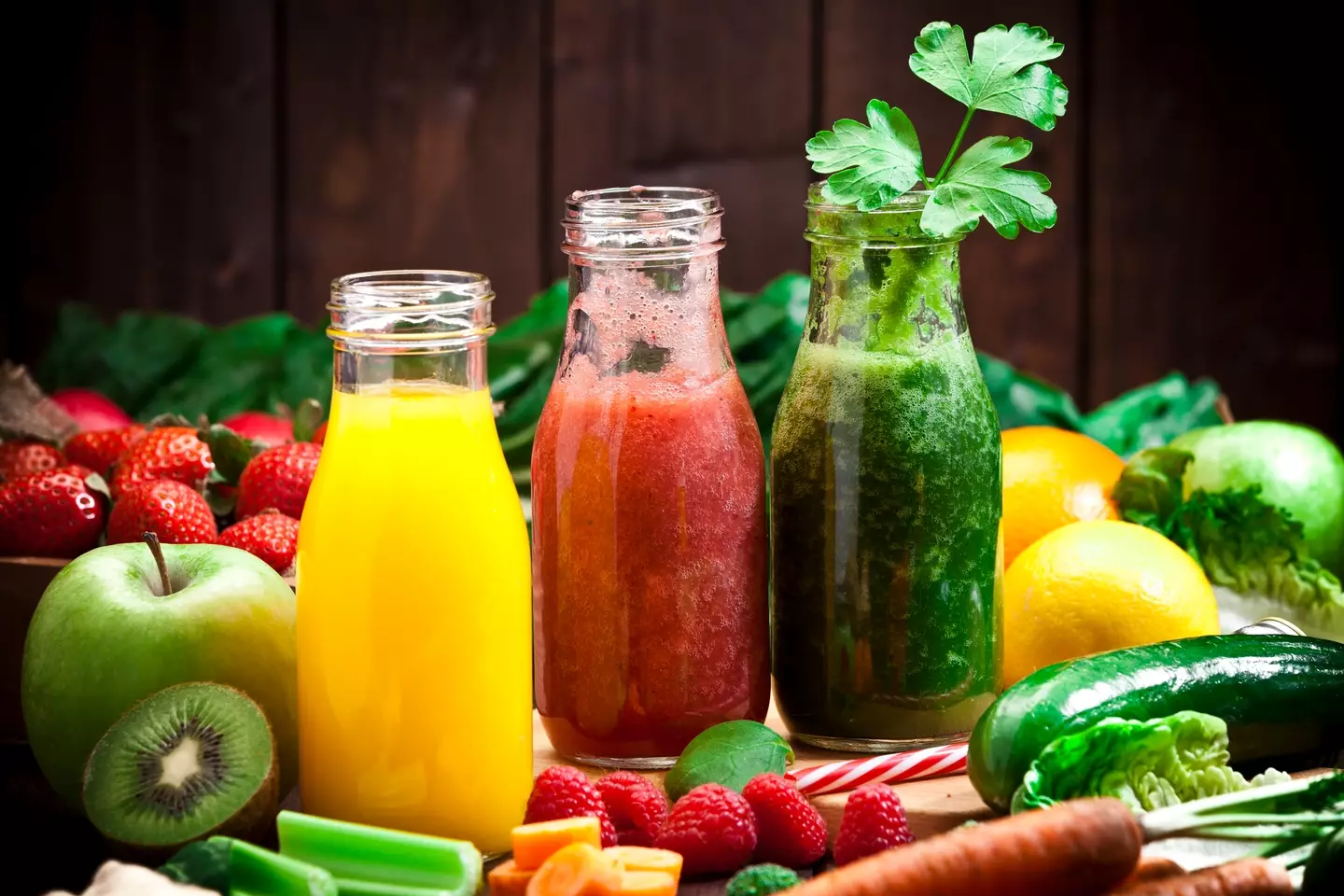
In a pretty health-conscious zeitgeist, there’s no shortage of terrible dietary advice doing the rounds on social media. Various different fads get slung across TikTok, with almost purely anecdotal ‘evidence’ being enough to rack up millions of views and copycats.
Some seem relatively harmless or even beneficial, such as fibremaxxing, while extreme diets like the carnivore regimen may pose significant long-term health risks.
As a rule of thumb, don’t base your life choices on what you see on TikTok. Healthy cynicism is encouraged, especially when you consider that the more unconventional or outrageous claims tend to do best in the algorithms.

Advert
One popular dietary trend is the three-day juice cleanse. If you’re unfamiliar, it’s basically a crash diet where you only consume juiced fruits and vegetables in a bid to ‘reset’ your health.
“Whether they're labelled as a juice fast, cleanse or detox, all juice diets are based around consuming a variety of fruits and vegetables in their liquid ‘juiced’ form,” says Good Food.
“Many juice diets involve abstaining from eating other foods and only drinking juice, while some involve eating particular solid foods in conjunction with juices. Whichever approach you adopt the calorie intake is typically very restrictive.”
It might seem like a decent idea at first. After all, you’ll be getting a lot of nutrients, a shot of fibre, and you’ll be sparing yourself any unwanted nasties like preservatives, additives, excess salt, and unhealthy fats.
However, a new study from Northwestern University has linked juice-only routines with inflammation, brain fog, and increased anxiety.
According to the study, a three-day juice cleanse can have a significant effect on your oral microbiome by increasing the rate of negative bacteria in your mouth.
While the study showed a limited effect on gut health, it was shown to increase inflammation-promoting bacteria like Porphyromonadaceae which have been lined with anxiety and increase gut permeability.
These changes, particularly in the gut, have been shown to persist for as long as a fortnight after the juice cleanse is over.
While you might expect a plant-based juice blend to be fibre-rich, you’d be mistaken. Researchers pointed to low fibre and high sugar content as potential causes for juice cleanses’ negative bacterial changes in the mouth and gut
The study, ‘Effects of Vegetable and Fruit Juicing on Gut and Oral Microbiome’, was published in the Nutrients journal.
“This highlights how quickly dietary choices can influence health-related bacterial populations,” said Dr. Melinda Ring, director of the Osher Center for Integrative Health at Northwestern University Feinberg School of Medicine, in a statement.
“The oral microbiome appears to be a rapid barometer of dietary impact.”

She continued: “Most people think of juicing as a healthy cleanse, but this study offers a reality check.
“If you love juicing, consider blending instead to keep the fibre intact, or pair juices with whole foods to balance the impact on your microbiome.”
Maria Luisa Savo Sardaro, lead author of the study, added: “The nutritional composition of juice diets — specifically their sugar and carbohydrate levels — plays a key role in shaping microbial dynamics in both the gut and oral cavity and should be carefully considered.”
